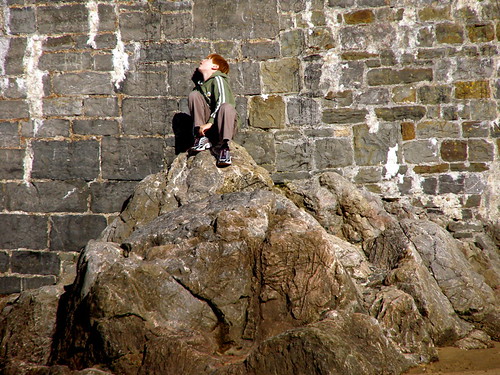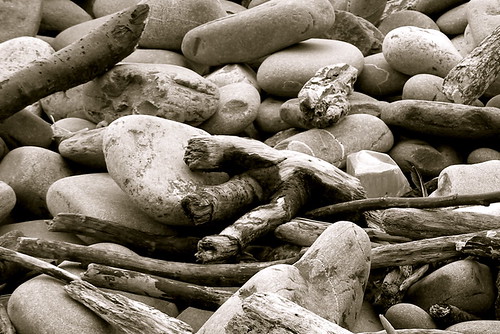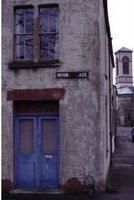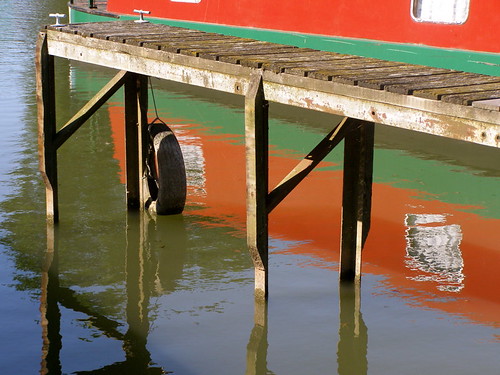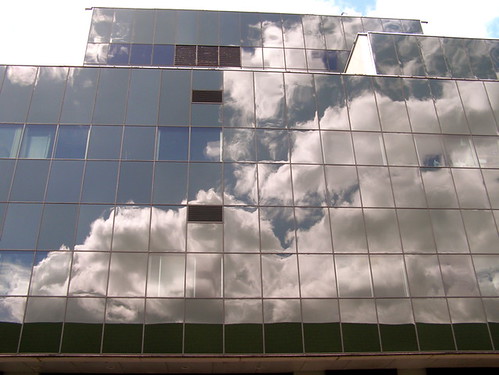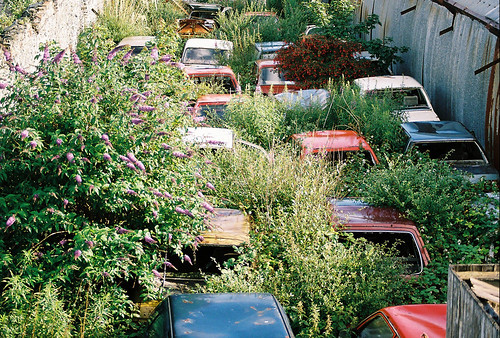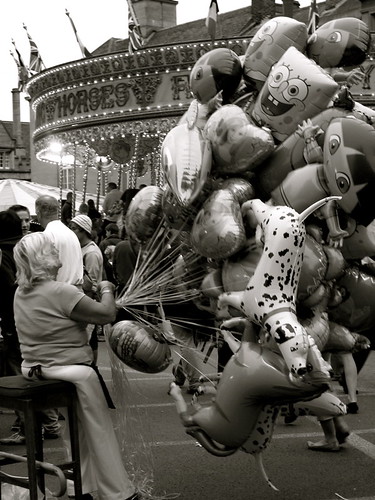
What do we believe when we believe that a photograph is true? That it mimics what we would see with our own eyes, if we were standing where the camera was placed?
No camera records what you really see. Perspective, depth of field, angle of view, choice of film, choice of display medium - all manipulate what is there, all are deceptive to some extent. Every photo is a "falsification" in the sense that it compresses a 3 dimensional object onto a 2 dimensional image. Black and White is another interesting abstraction that could be argued to be a falsification of the "natural".
But there is a difference between 'deception' and 'alteration'. The first causes us to believe true what is false, the second makes different without changing into something else. Are either of these acceptable?
In the field of photojournalism, deception reguarly occurs, to either produce a more newsworthy photograph or to actually falsify the portrayal of events, to rewrite history as it were. For example, in Stalinist Soviet Russia, prominent party members that fell into disfavor were routinely arrested and executed, what followed was a careful eradication of these people from all historical records and photographs. The collective memory, over time, ceased to remember that they ever existed.
We live in an era in which images are carefully choreographed, when politicians use staged settings to further partisan goals, where the media do what they need to induce emotion and frenzy. Shortly after the events of 9/11, a story was widely circulated that swept the Internet into a storm. A camera that somehow survived the devastating collapse was found on a sidewalk. When developed, the film revealed
a tourist on the World Trade Center, a low-flying plane in the background. Tourist Guy became folklore. The astute observer may detect the image as a fake. The North Tower had no open observation deck; it's not the right plane and it's flying at a different angle; also Tourist Guy is dressed too warmly for the weather. Tourist Guy has subsequently been identified as a 25-year-old Hungarian named Peter who wishes to remain as anonymous as possible. Tourist Guy is well on his way to becoming the most-Photoshopped person in history.
But photography as alteration, is that OK? National Geographic recently admitting moving one of the great pyramids 'a bit to the left' to enhance the composition of their cover photo. Kate Winslet complained that the doctoring of her February 2003 GQ cover photo was excessive, that her legs were 'about the third of the size they really were'. Is alteration deception, or is it just Art, a bit of tinkering in the name of beauty, a white lie?
When presented with a photograph we look and react with emotion and that derives from our trust in what are looking at represents the real. It is the same throughout human experience, after all, what do we believe when we believe a person is being true? That they are who they say they are, that they really mean the things they say, that their actions are representative of their feelings? Nearly everyone has been burnt at some point, yet often we continue to trust, even if we are deceived or experience alteration. At what point do we decide that we should no longer trust? At what point do we start seeing the great photographer as the great manipulator?


The Vanishing Commissar: Soviet dictator Josef Stalin with and without Nikolai Yezhov, commissar of water transport. Yezhov was executed in 1940.
Photo at top: After an Air Force attack on BeruitIn June 2006 Reuters withdrew this photograph after it was proven to have been doctored to include to include more smoke and damage.
